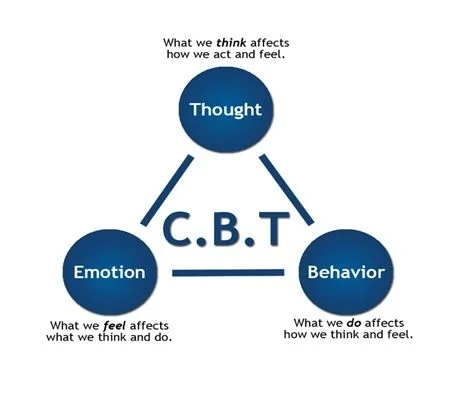What happens during CBT sessions
If CBT is recommended, you'll usually have a session with a therapist once a week or once every 2 weeks.
Recommended between 5 and 20 sessions, with each session lasting 30 to 60 minutes.
• Work with your therapist to break down your problems, such as your thoughts, physical feelings and actions.
• Analyse these areas to work out if they're unrealistic or unhelpful, and to determine the effect they have on each other and on you.
• Work out how to change unhelpful thoughts and behaviours.
• Practise these changes in your daily life and you'll discuss how you got on during the next session.
The eventual aim of therapy is to teach you to apply the skills you have learnt during treatment to your daily life.
(CBT) can be as effective as medication in treating some mental health problems, but it may not be successful or suitable for everyone.
Some of the advantages of CBT include:
• Medication alone hasn't worked
• it can be completed in a relatively short period of time compared with other talking therapies
• Highly structured nature of CBT means it can be provided in different formats, including in groups, self-help books and apps
• Teaches useful and practical strategies that can be used in everyday life
Some of the disadvantages of CBT to consider include:
• You need to commit yourself to the process to get the most from it – a therapist can help and advise you, but they need your co-operation
• Attending regular CBT sessions and carrying out any extra work between sessions can take up a lot of your time
• It may not be suitable for people with more complex mental health needs or learning difficulties, as it requires structured sessions
• It involves confronting your emotions and anxieties – you may experience initial periods where you're anxious or emotionally uncomfortable
it focuses on the person's capacity to change themselves (their thoughts, feelings and behaviours)
Some critics also argue that because CBT only addresses current problems and focuses on specific issues, it doesn't address the possible underlying causes of mental health conditions, such as an unhappy childhood.y










